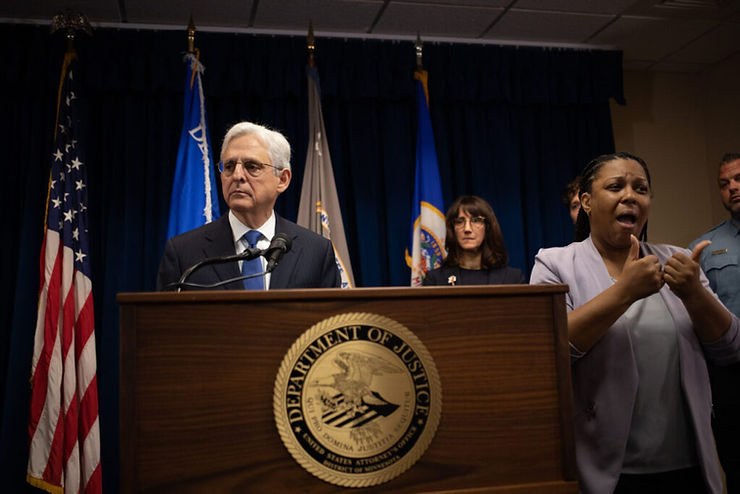By: Marina Han
3 years after a Minneapolis police officer murdered George Floyd, the Department of Justice released a report on Friday which stated that Minneapolis’s Police Department has shown unlawful conduct, discrimination, and mismanagement. It was supposed to be an ending to the complaints about policing in Minneapolis. But people in this city took it in multiple ways; some lost their trust in Minneapolis’s police department while the police are trying to gain their trust back.
T.J. Johnson, a 63-year-old Black resident of South Minneapolis for 40 years, said to a New York Times journalist that he is applying for a gun permit because he already does not believe that the police will keep him safe. “I stay away from them as far as I can,” said Johnson. “White men and women, they don’t worry like we do.” He stated that he personally thought that a firearm was the safest option in Minneapolis, where crimes, especially when related to cars, have become a major concern. “I’m planning on never going outside without my gun again,” he added.
Johnson is not the only one that feels unsafe. Mook Thomas, 27, and Black, just moved to the North Side of Minneapolis at the end of 2022 with her family. She met police officers one night at midnight when she and her husband were driving home. They were pulled over and were told that they were stopped for a broken headlight. However, Thomas said that she knew both headlights worked. “He’s harassing us, telling us we don’t belong over here,” Thomas shared. She also said that she decided to avoid Minneapolis police officers and that she would not even call them if her life was in danger. She “would keep going” if they ever pulled her over again.
Senator Tina Smith, who has lived in Minneapolis for around 40 years, explained that the Department of Justice report likely landed differently in different parts of the city. “There are probably a lot of people reading this report, especially people who live in Black and brown communities, who are saying, ‘This is terrible, but it’s not news to me,’” she said to The New York Times journalist. “I think there probably are also people who live in more affluent parts of the city who may be surprised to see how pervasive the violations have been.”
The police officers’ union, the Police Officers Federation of Minneapolis, said in a statement that the report had glossed over multiple important heroic acts. “The report will merely be used by those who are inclined to have an anti-police bias to justify their beliefs while those who are more pro-police will question the report’s findings,” said the union. “As with most things, the truth lies somewhere in the middle.”
Longtime police officers have added that many of the incidents shared in the report included officers who have already left the force, such as Chauvin. “The cops are tired of being called racist,” said Sgt. Andrew Shroeder to The New York Times journalist, who has been an officer for Minneapolis since 2014. “The cops who are still here in the department are good officers, they want to do a good job and legitimately want to make the community better.”
Cmdr. Yolanda Wilks, one of 6 Black female police officers in Minneapolis, is focused on rebuilding trust between the officers and the people. In an interview, she acknowledged that gaining trust will take a very long time. She hoped that residents could understand how difficult it was for the officers still working in the police department. Although she came close to quitting sometimes, she stayed because she had a feeling that the city would recover. “It will be a while,” she stated. “An open wound takes time internally for it to heal.”
Hopefully, the police and the residents can patch up and the conflict can be resolved. Nothing is worse than having a bad relationship with the people who are supposed to keep them safe.











